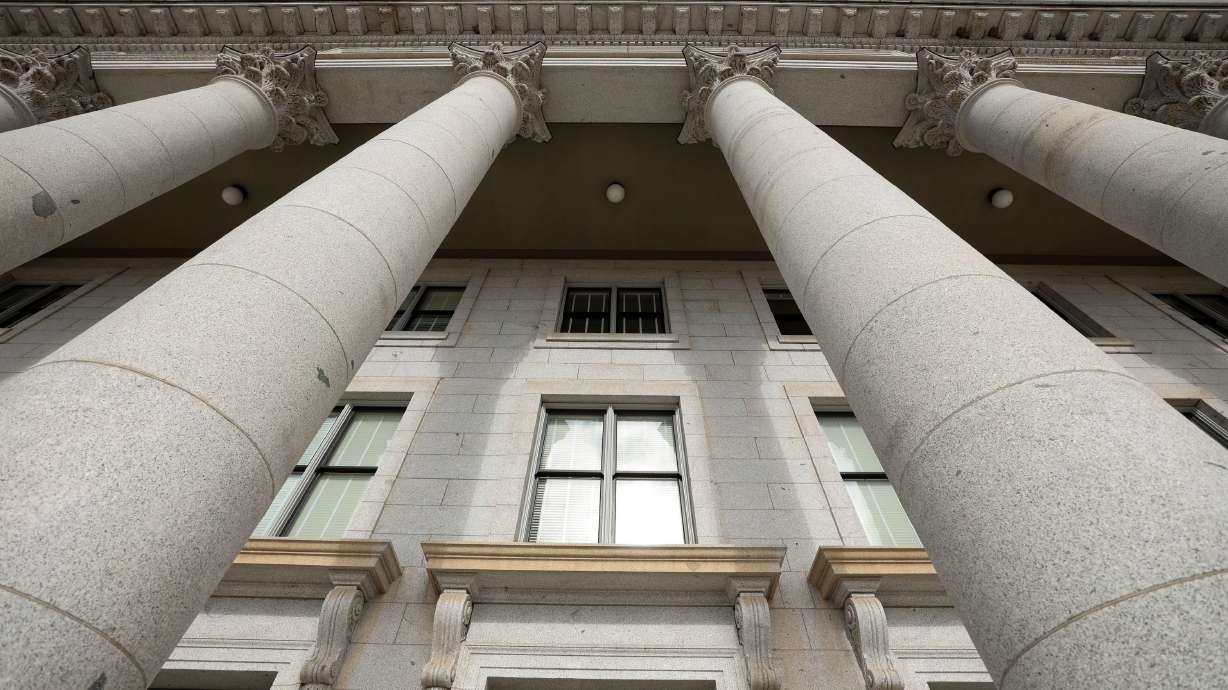Estimated read time: 3-4 minutes
This archived news story is available only for your personal, non-commercial use. Information in the story may be outdated or superseded by additional information. Reading or replaying the story in its archived form does not constitute a republication of the story.
SALT LAKE CITY — The Utah Legislature has approved a $400 million tax cut package, more than half of which, $208 million, will go toward dropping Utah's income tax rate from 4.85% to 4.65%.
The House and Senate both voted Thursday to pass HB54, the bill containing the entire tax reduction package. It now goes to Gov. Spencer Cox, who is expected to sign the bill.
Republican legislative leaders have called it a "historic" but "measured" tax cut in a year when lawmakers had a hefty budget surplus, but also pumped hundreds of millions of dollars toward "generational" investments in water infrastructure and conservation efforts, as well as housing and homelessness issues.
Before the 2023 session started, lawmakers set aside $400 million in tax cuts for Utahns. Mid-session, after new revenue estimates showed flat projections (meaning lawmakers weren't suddenly flush with more money than they initially expected to spend this year), legislators kept the reduction at $400 million.
The bill's final approval came after some confusion and disagreement between the House and Senate over a technical provision dealing with license plate fees the Senate added to the bill Tuesday night, but that the House refused to concur with. Eventually, after holding a conference committee to resolve the issue, the Senate approved the bill, followed by the House.
Sales tax on food
As the bill progressed through the chambers, lawmakers added a contingent removal of the state's portion of sales tax on food, which would amount to a $200 million tax cut — but only if voters approve a constitutional amendment to loosen the earmark that reserves income tax for public education. Legislative leaders say it would fix a "structural imbalance" between sales tax and income tax revenue in the budget.
That constitutional amendment, proposed with SJR10, was still being negotiated with education stakeholders as of Thursday afternoon, Senate Majority Whip Ann Millner, R-Ogden, told reporters.
The legislative session ends Friday at midnight.
The resolution, approved only by the Senate so far, would remove the earmark, but legislators are considering a new version that could be adopted in the House that would still preserve the earmark but open the funding up to other needs after education priorities have been met, according to Millner.
If the constitutional amendment makes it to the November 2024 ballot and if voters approve it, state lawmakers will repeal the state portion of food tax starting in 2025. That would mean a household that spends $6,000 annually on groceries would see tax savings of about $105 per year, according to legislative fiscal analysts.
'Strike a balance'
The Senate voted 22-6 and the House 50-11 to approve the overall tax cut package. Democrats voted against the bill, saying they opposed lumping the contingent sales tax on food repeal into the bill before negotiations over the constitutional amendment on education funding had been settled.
In addition to the tax rate reduction, HB54 would also expand the Social Security tax credit to individuals earning up to $75,000 per year, provide a tax benefit for pregnant women by allowing a double dependent exemption for children in the year of their birth, and increase the earned income tax credit from 15% to 20% of the federal tax credit.
If Utah's income tax rate drops to 4.65%, an average family of four making $80,000 would see a $208 reduction in tax liability. Through the tax package as a whole, low-income households would see a 22% tax cut, middle-income households would see a 6% tax cut and high-income households would see a 4% tax cut, according to legislative fiscal analysts.
Critics of an income tax rate reduction have argued it would largely benefit higher earners, but Rep. Steve Eliason, R-Sandy, said the package, while providing an income tax rate cut, would also target lower- and middle-income earners through expanding the earned income and Social Security tax credits.
"We attempted to strike a balance," Eliason said.










